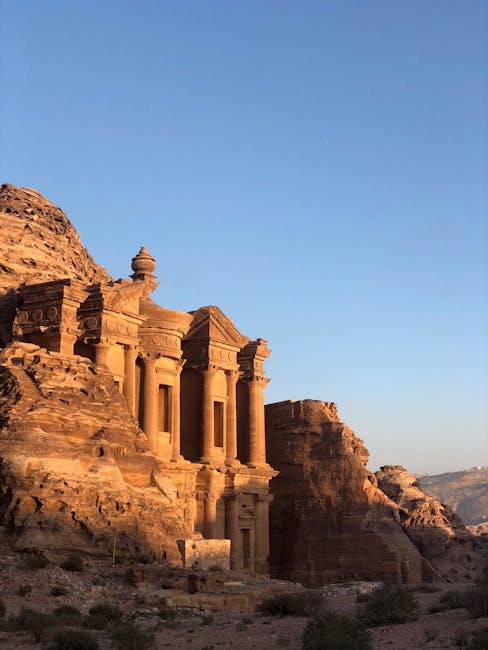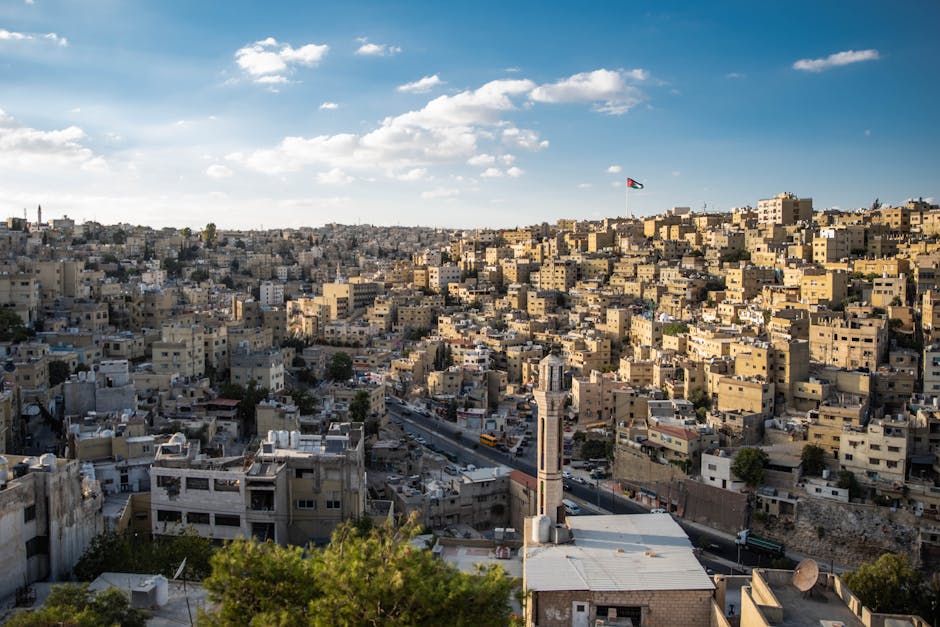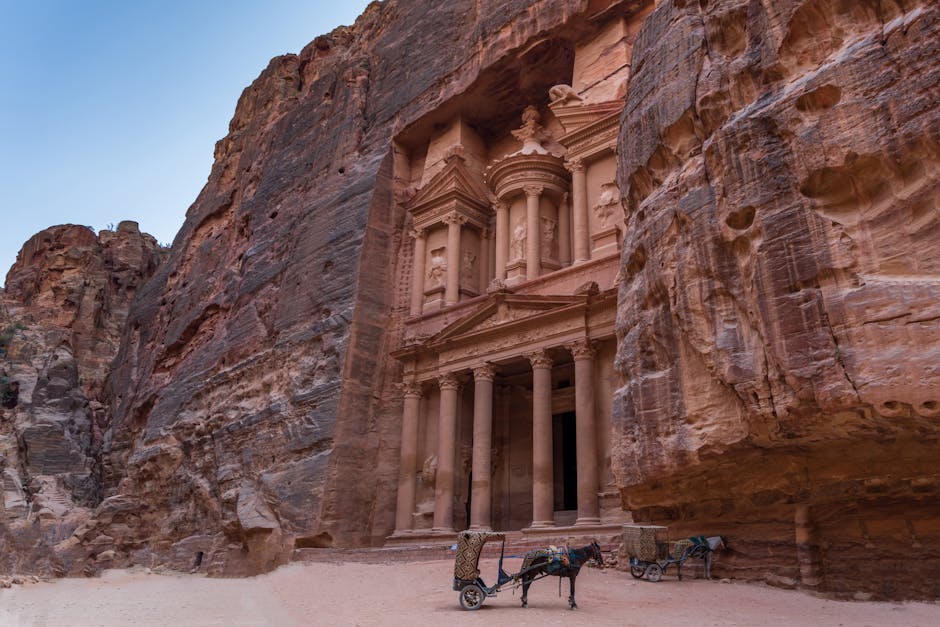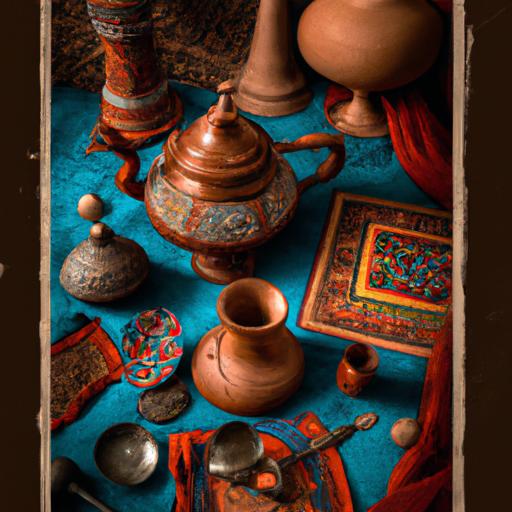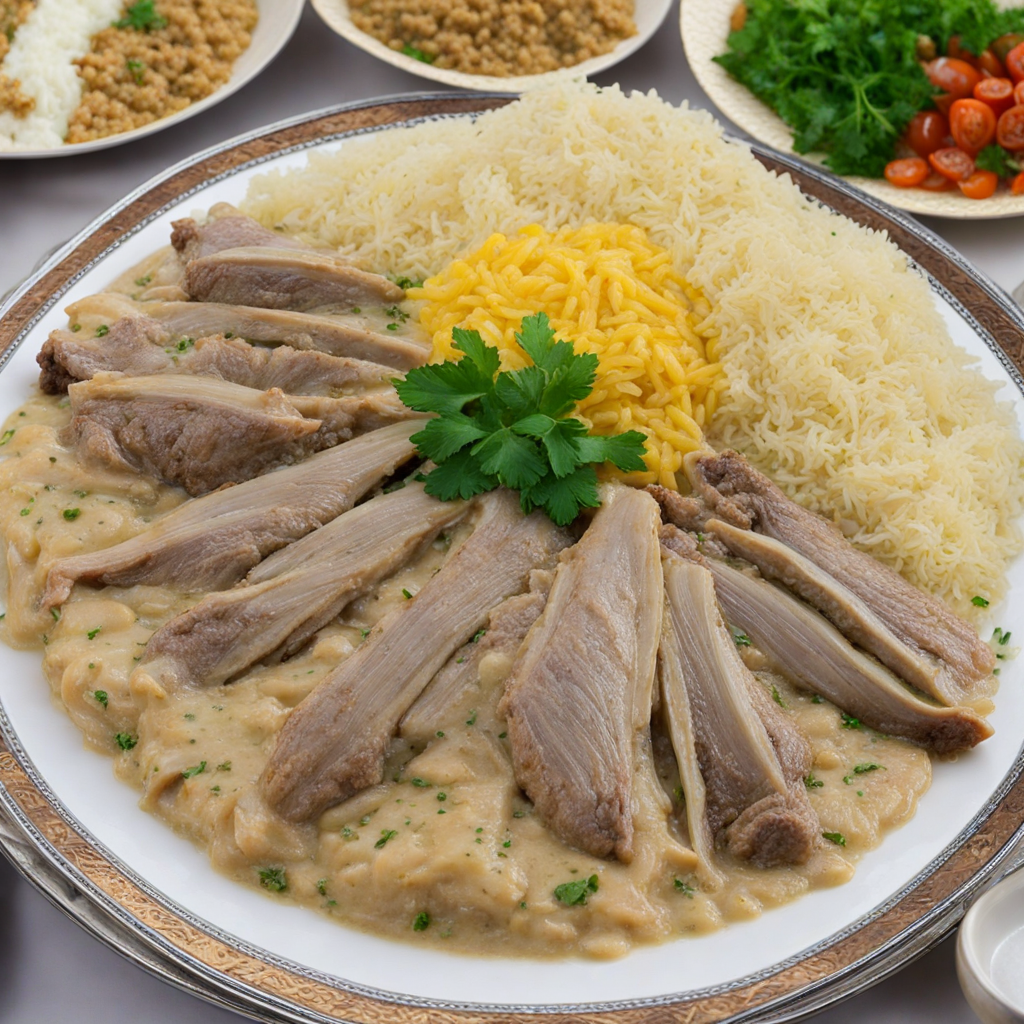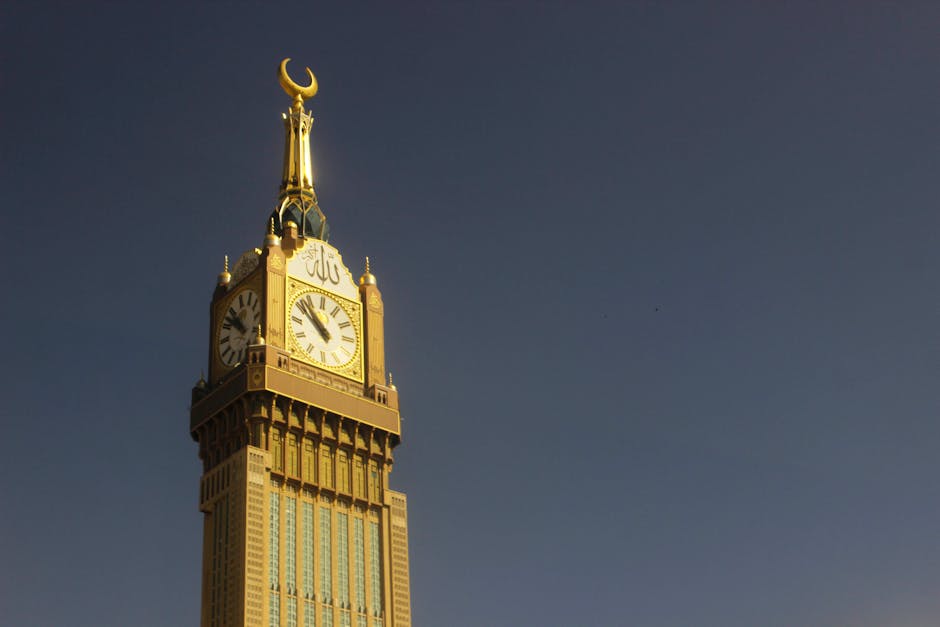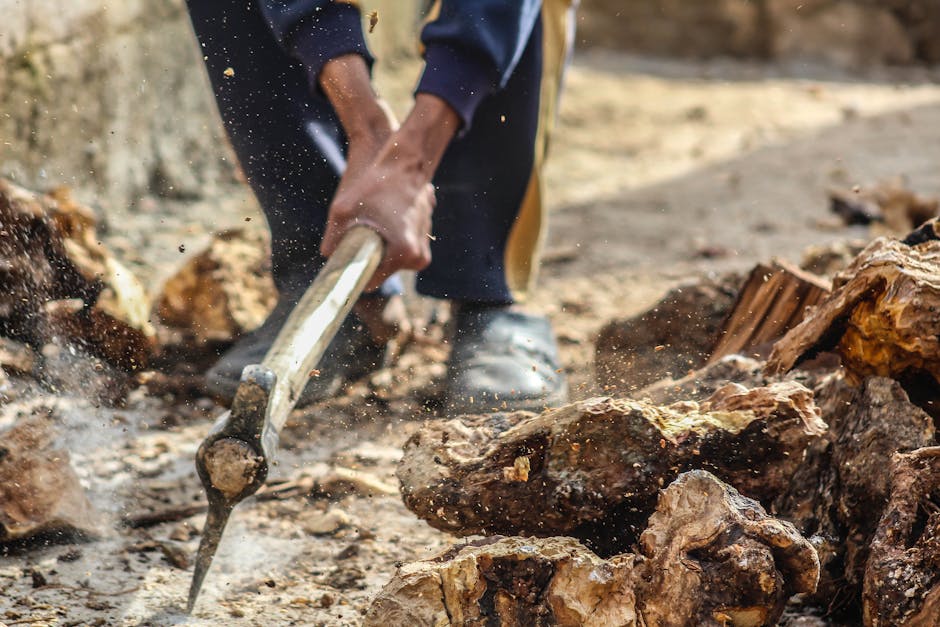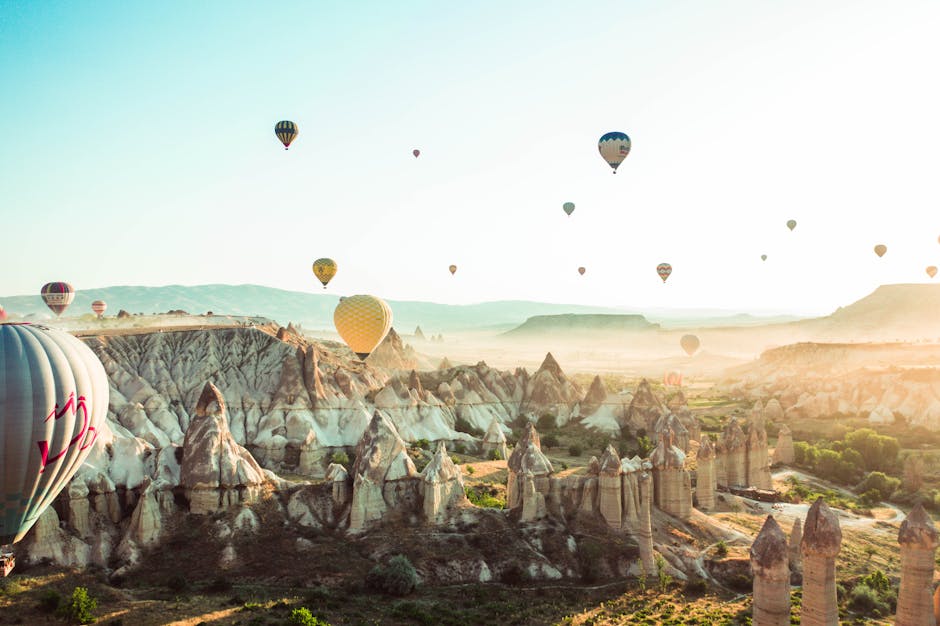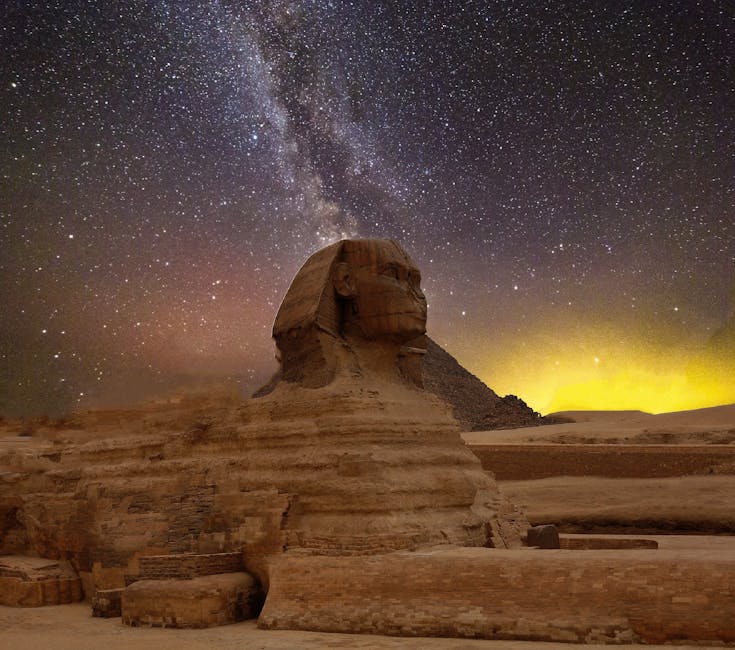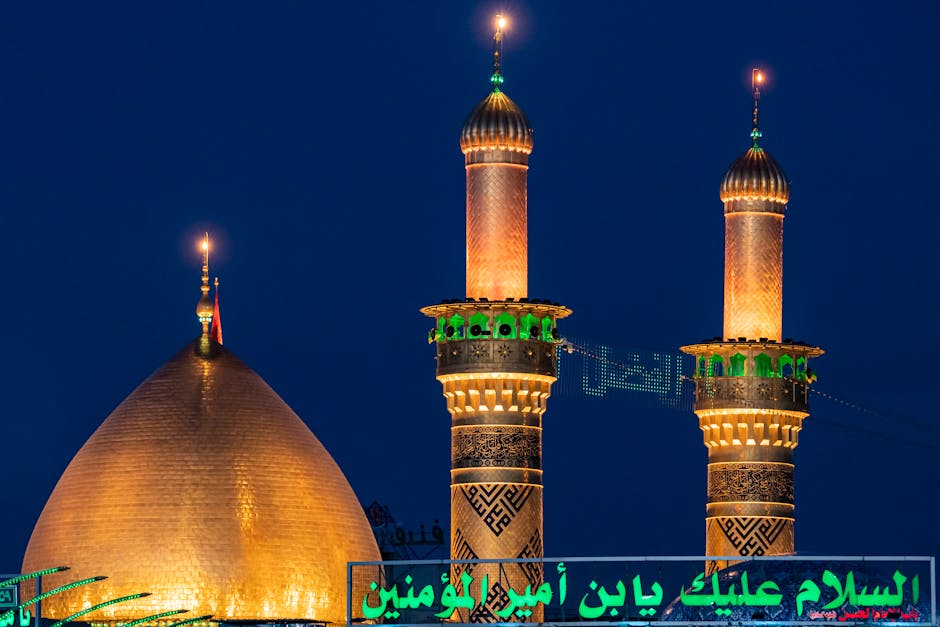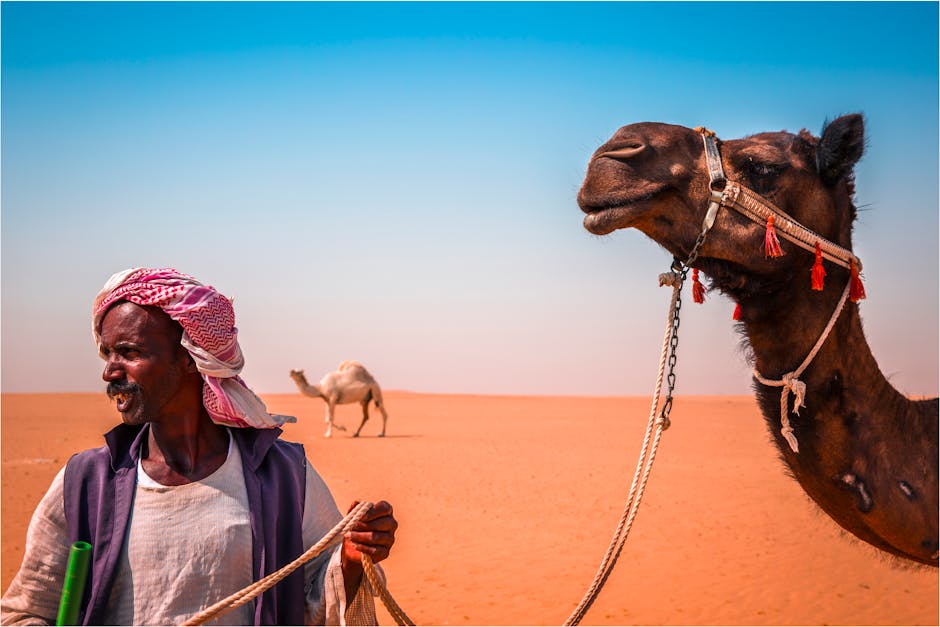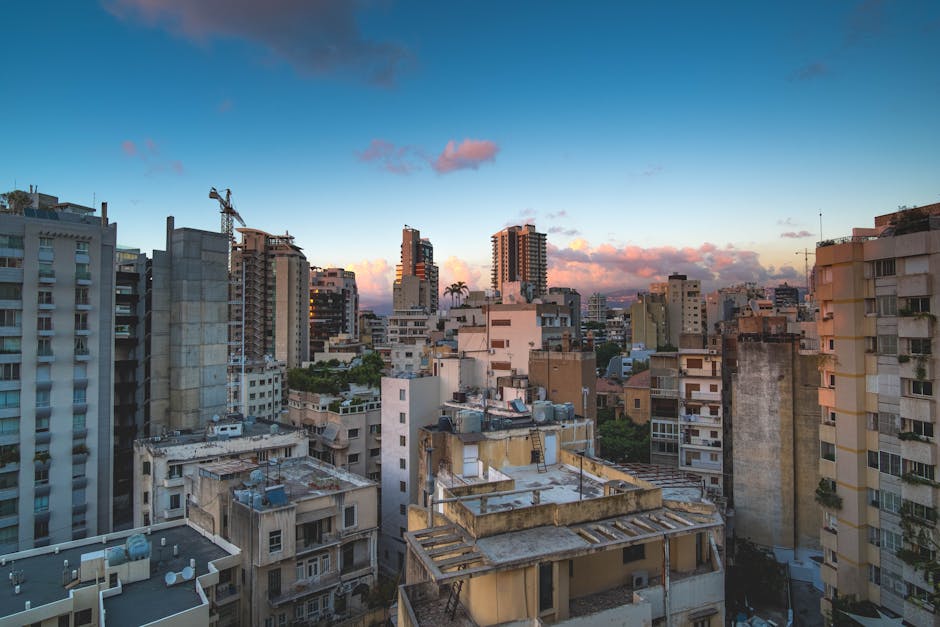Jordan
Overview
Jordan, officially known as the Hashemite Kingdom of Jordan, is a captivating Middle-Eastern country known for its rich culture, history, hospitality, and diverse landscapes. It is a unique blend of ancient and modern, with age-old monuments and vibrant cities. The culture is deeply rooted in Islamic traditions that shape Jordan's way of life, yet it has a laid-back approach that makes it appealing to young travelers. One of the country's most unique features is the world-renowned archaeological site of Petra, an ancient city carved into the rose-red cliffs, offering an unparalleled historical experience.
The high season for tourism in Jordan is during the spring (March-May) and autumn (September-November) months when the weather is most pleasant, with temperatures ranging from 20-30°C. During this time, the breathtaking scenery of Jordan comes to life, with wildflowers blooming in the desert and the forests showing vibrant autumn colors. Activities available include exploring the ancient city of Petra, taking a rejuvenating dip in the Dead Sea, stargazing in the Wadi Rum desert, hiking in the Dana Biosphere Reserve, and experiencing the bustling nightlife of Amman. The Jerash Festival, held in July, is a major cultural event showcasing music, dance, and theatrical performances.
Before visiting Jordan, teenagers should do some research on the cultural norms to ensure they respect local customs. Dress modestly, particularly in rural areas and religious sites. English is widely spoken, but learning a few basic Arabic phrases could be helpful. Regarding health precautions, it's recommended to have routine vaccines up to date and consider vaccines for Hepatitis A and Typhoid. Carry a reusable water bottle to stay hydrated, but ensure to fill it with filtered water. Lastly, Jordan has a currency called the Jordanian Dinar (JD), so it’s essential to have some local currency on hand, although credit cards are widely accepted. Be prepared for a journey filled with adventure, culture, and treasured memories.
A Glimpse into the Past
The Hashemite Kingdom of Jordan, a nation rich in history and cultural heritage, is a fascinating destination for travelers. Nestled between Syria to the north, Iraq to the east, and Israel and Palestine to the west, Jordan boasts an array of historical sites and natural wonders that tell the story of its past.
One of the most iconic sites in Jordan is Petra, a UNESCO World Heritage Site and one of the New Seven Wonders of the World. This ancient city, carved into rose-red rock, was the capital of the Nabataean Kingdom from the 4th century BC until it was annexed by the Romans in AD 106. The entrance to Petra, known as the Siq, is a narrow gorge that leads visitors to the breathtaking Al-Khazneh (The Treasury), a stunning façade that has become a symbol of Jordan. Exploring Petra offers a glimpse into the advanced engineering and artistic skills of the Nabataeans, who thrived in this arid desert environment by mastering water conservation techniques.
Another remarkable site is Jerash, known as the "Pompeii of the East." This ancient Greco-Roman city is one of the best-preserved Roman ruins in the world. Walking through the Hadrian's Arch and along the colonnaded streets, visitors can admire the impressive architecture, including temples, theaters, and the stunning Oval Plaza. Jerash offers a unique opportunity to step back in time and experience the grandeur of Roman civilization in the region.
Moving to the southern part of the country, travelers can explore the Wadi Rum, a vast desert wilderness known for its dramatic sandstone mountains and stunning landscapes. This UNESCO World Heritage Site is often referred to as the "Valley of the Moon" and has been a filming location for many Hollywood movies, including "Lawrence of Arabia." Adventurers can take jeep tours, camel rides, or spend a night under the stars in traditional Bedouin-style camps, immersing themselves in the rich culture of the Bedouin people.
The capital city, Amman, is a vibrant blend of ancient and modern. The city's history can be traced back to the Bronze Age, and it has been inhabited by various civilizations, including the Ammonites, Romans, and Byzantines. In Amman, visitors can explore the Amman Citadel, which offers panoramic views of the city and houses the remnants of Roman, Byzantine, and Islamic structures. The nearby Roman Theater, with its impressive seating capacity of 6,000, is a testament to the city's historical significance and is used today for cultural events and performances.
For those interested in religious history, the Mount Nebo is a must-visit. This site is believed to be the location where Moses viewed the Promised Land before his death. The mount features a memorial church and offers breathtaking views of the Jordan Valley, the Dead Sea, and even Jerusalem on clear days. The Madaba Mosaic Map, located in St. George’s Church in Madaba, is another significant religious site, depicting a detailed map of the Holy Land from the 6th century AD.
The Dead Sea, situated at the lowest point on Earth, is another highlight of Jordan. Visitors flock to this unique body of water to experience its mineral-rich mud and buoyant waters. The therapeutic properties of the Dead Sea have been known since ancient times, and today, numerous resorts offer spa treatments that take advantage of the area's natural resources. Floating in the Dead Sea while reading a book is an experience like no other.
In the northern part of the country, travelers can explore the Ajloun Castle, a 12th-century Muslim castle built to defend against the Crusaders. The castle is perched atop a hill, providing stunning views of the surrounding countryside. Ajloun is also a great place to learn about Jordanian heritage and the role of the castle in historical conflicts.
Another significant site is the Desert Castles, a group of early Islamic palaces and fortresses located in eastern Jordan. These castles, such as Qasr Amra, are remarkable for their stunning frescoes and intricate architecture, showcasing the artistic achievements of the Umayyad period. Qasr Amra is particularly famous for its well-preserved bathhouse and its UNESCO designation as a World Heritage Site.
For those seeking adventure, the Dana Biosphere Reserve offers a remarkable opportunity to explore Jordan’s diverse ecosystems. The reserve is home to a variety of flora and fauna, as well as ancient terraces and archaeological sites. Hiking through the reserve allows visitors to experience the breathtaking landscapes and the natural beauty of Jordan while learning about the region's environmental efforts.
Jordan is also known for its rich culinary traditions. Travelers should not miss out on trying mansaf, the national dish made of lamb cooked in a sauce of fermented dried yogurt and served over rice. Other traditional dishes include makloubah, a layered rice dish, and falafel, which can be found in street stalls throughout the country. Food markets, or souks, are vibrant places to experience local life, offering spices, sweets, and handicrafts.
Jordan's hospitality is legendary, and visitors are often welcomed with open arms by the local people. The Bedouins, in particular, are known for their generosity and traditional ways of life. Engaging with the local communities, whether through cultural experiences or staying in a Bedouin camp, provides a deeper understanding of Jordanian culture and traditions.
In conclusion, Jordan is a land of historical significance and natural beauty, offering travelers a unique blend of ancient sites, vibrant culture, and stunning landscapes. From the majestic ruins of Petra and Jerash to the serene waters of the Dead Sea, Jordan provides a captivating journey through time. With its rich heritage and warm hospitality, it promises an unforgettable experience for every visitor.
Top cities for tourists in Jordan
Discover the Famous Cities That Might Captivate Your Interests
Must-Try Foods You Can't Afford to Miss
Indulge in a Variety of Fantastic Foods During Your Stay in Jordan
May Be Your Next Destinations
People often choose these countries as their next destination


